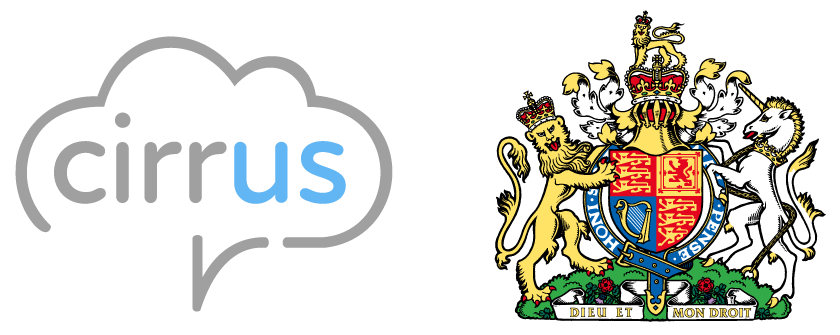Working in a contact centre can be a high-pressure job. Employees spend hours on the phone handling customer inquiries and complaints. The statistics are telling: according to a recent survey, more than 70% of contact centre employees in the UK report high stress levels, and absenteeism in these environments is significantly higher than in other sectors This demanding environment often leads to burnout and high attrition rates.
But AI technology presents new opportunities to dramatically improve employee experiences in contact centres. When thoughtfully implemented, AI can optimise workflows, reduce stress, and create a more supportive workplace.
Below are some key ways AI can enhance employee wellbeing:
Smarter Scheduling to Balance Workloads
Advanced AI-driven predictive analytics can analyse historical and real-time data to offer employee well-being advise and insight.
- Call Duration Tracking: AI can track how long employees spend on calls. Longer calls could mean they are struggling with issues and need extra training or support.
- Voice Analysis: AI can detect stress and frustration in the voices of employees and customers. This allows supervisors to step in and help reduce conflict.
- After-Call Work Tracking: Monitoring time spent on post-call work shows if employees are getting overwhelmed. AI can streamline processes to reduce this workload.
- Absence and Turnover Tracking: In the UK, the average turnover rate in contact centres is around 15-20%, as reported by Contact Babel. High absence and turnover suggest unhappy employees. AI can connect stress signals to retention rates, so managers can improve satisfaction.
- Speech Pattern Tracking: AI can catch changes like more hesitations or faster talking. These are early signs of rising stress, so managers can address problems.
AI tools can analyse historical data to understand daily and weekly call volume patterns. For example, Mondays tend to be busier than Fridays. The tools can also track the frequency of simple vs complex calls. With these insights, AI-powered scheduling systems can better balance employee workloads.
The AI can strategically mix high-volume and low-volume days. It can ensure adequate time between demanding calls to let employees recharge. Breaks can be timed for optimal energy renewal. This data-driven approach prevents burnout from constant high-intensity work.
Personalised Wellness Plans to Reduce Stress
Humans have varying levels of resilience to workplace stress. AI systems can monitor individual factors like call handling time, survey responses, and linguistic/vocal signals. This data helps identify who is struggling with high pressure. A study by the University of Illinois found short breaks help people stay focused when doing a task for a long time.
The AI can then recommend personalised wellness interventions to help employees manage stress. For example:
- Adjusted break schedules
- Reminders for breathing exercises after difficult calls
- Suggested micro-breaks to take a quick walk outside
By catching signs of burnout early, employees get the specific support they need. This prevents small issues from snowballing into major mental health crises.
Automating Repetitive Work to Increase Engagement
Contact centre agents spend significant time responding to common inquiries like account balances, payment dates, product features, etc. AI chatbots can easily handle these repetitive requests, which will reduce the number of calls.
Automating this mundane work means agents can focus on complex issues that require human judgment and empathy. This makes the job more satisfying and could lead to more training on advanced skills like conflict resolution to support career growth.
AI can help agents prepare for calls by giving them a summary of the customer before they go on a call, and give them handy advice and tips during the call. Agents feel supported, empowered, and satisfied when they can resolve a customer query the first time around.
Monitoring Ergonomics to Improve Physical Health
Remaining sedentary at a desk all day can negatively impact physical health. AI sensors can monitor employees’ posture, time sitting vs standing, keyboard use, etc. The AI detects unhealthy behaviours like slouching and can prompt corrective actions like taking a movement break or adjusting chair height.
Providing these ergonomic interventions will help agents avoid chronic issues like back/wrist pain. This improves quality of life and reduces absenteeism.
Analysing Interactions to Guide Training
Communication style plays a huge role in customer satisfaction. AI can analyse past call recordings to detect patterns like extended silences, signs of frustration, and talking speed. Aggregate trends help identify areas for improvement across the team through empathy or de-escalation training.
The AI can also listen in real-time for indicators of a stressful call. It can provide feedback to the agent or notify a supervisor to intervene. This protects employees from emotionally draining interactions.
Forecasting Call Volumes to Improve Staffing
Unpredicted spikes in call volume quickly increase workplace stress. AI analytics tools can forecast upcoming daily and seasonal fluctuations based on historical data. Models factor in day of week, weather, new product releases, and other variables that impact customer inquiries.
With reliable forecasts, managers can adequately staff during peak periods. This ensures that unexpected call surges don’t result in employee overload.
Proactively Supporting Mental Health
Untreated mental health issues like anxiety, depression, and burnout are common in high-pressure contact centres. AI can unobtrusively monitor various factors like absenteeism, performance metrics, and linguistic cues to detect emerging issues early on. At the first warning signs, the AI system can confidentially suggest counselling resources and interventions to the employee. Offering preventative mental health support promotes a culture of care and retains valuable talent.
Thoughtfully applied AI has tremendous potential to enhance the well-being of contact centre employees. It offers personalised recommendations, optimises operations, provides real-time guidance, and automates repetitive tasks. This makes a traditionally high-stress job more sustainable by putting employee needs first.




